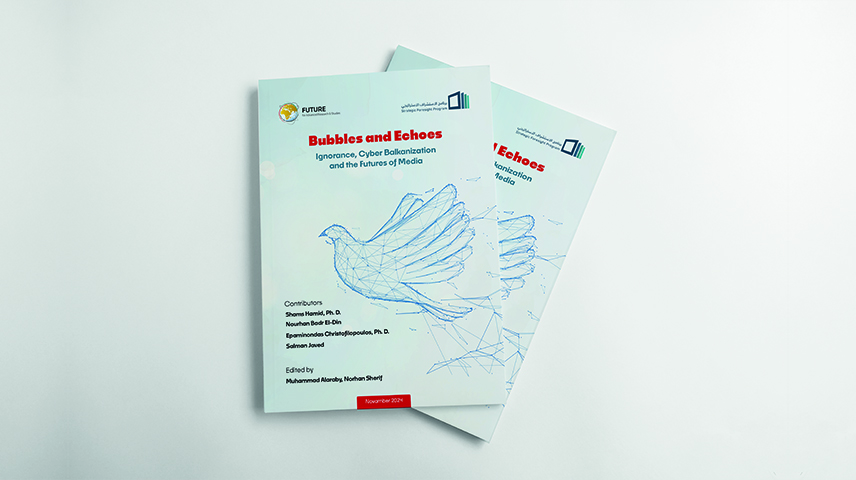Media has evolved beyond its traditional role of conveying explicit and implicit messages. It is no longer merely an ideological device of the state seeking influence and indoctrinating the audience. Instead, media has become a pervasive entity that touches every aspect of our mundane lives in various ways.
If we are fortunate enough to have you reading this edition, you are likely doing so on your laptop or mobile device—something you carry from the moment you wake up until the moment you fall asleep. It is not an exaggeration to say that media pursues us even in our dreams. It has become integral to identifying ourselves and defining our aspirations.
In navigating the futures of media, we encountered two options. The easy path would have been to focus on media technologies, such as artificial intelligence, AI news anchors, bots, and other forms of machine learning. However, we chose a more challenging route: discussing media as an existential phenomenon, exploring how it shapes our perception of the world and our place within it.
As a social device and system in the modern context, media was initially intended to inform and educate the audience. However, since its inception in the post-WWII world, mass media became increasingly intertwined with entertainment. It has blended cultural products with commercial ones. This business model has dominated mainstream media across cinema, journalism, and later, social media. Known as the attention economy, this approach has transformed media into a primary mechanism of the market.
One of the primary functions of media has been creating a collective perception of society through creating spaces for exchanging and disseminating ideas and imagery. However, societies are now encountering the divisive impact of media in the forms of cyber balakanization, splinternet, and echo chambers. We may argue that future media might not be less fragmenting than today’s; instead, our future media will likely consist of more echoes and bubbles. Moreover, the injection of AI technologies into media will likely be accompanied by increased biases and conflicts.
Mass media has played a crucial role in commodifying art and revolutionizing access to it. In doing so, it shapes our perception of the future through televised and dramatized science fiction. Through artistic production—both man-made crafted and computationally created— media continues to shape the evolution of the human condition.
The primary irony of the future of media will remain how to overcome the informed ignorance created by the overflow of content and the decline of cultured debates. This publication is a humble attempt to address these issues and others, aspiring to establish a constructive debate beyond the glittery images of technologies.


